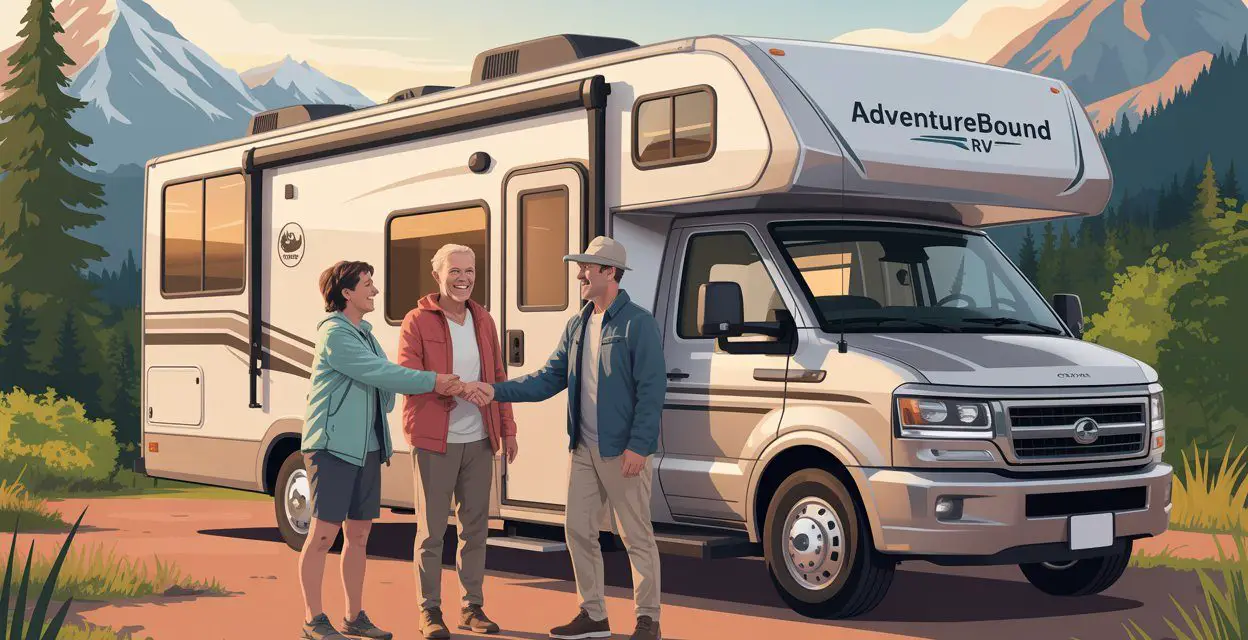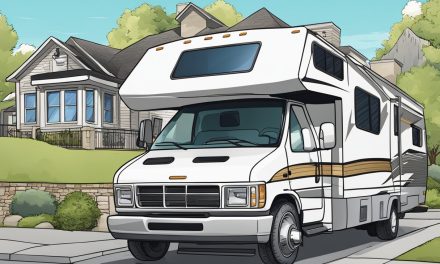Are you ready to say goodbye to your RV lifestyle? Whether you’ve been on the road for years or just realized the nomadic life isn’t for you, deciding what to do with your recreational vehicle can feel overwhelming. You’re not alone in this decision – millions of RVers exit the lifestyle every year for various reasons, from financial changes to health concerns.
The good news is that you have three main options when it’s time to part ways with your home on wheels. Each path has its own advantages and challenges, and the best choice depends on your specific situation. In this guide, we’ll break down everything you need to know about selling, renting, or donating your RV so you can make the smartest decision for your circumstances.
Would you like to save this article?
1. Rent Your RV: Turn Your Investment Into Income
Renting out your RV can be an attractive option, especially if you’re upside down on your loan or want to generate ongoing income. The rental market is booming, with the RV rental industry expected to reach $1.29 billion by 2030, growing at a CAGR of 8.11%.
Income Potential:
- Daily rates: $50-$200 per night depending on your RV type
- Weekly potential: Up to $1,200 per week
- Annual earnings: With 150+ rental days, you could earn $50,000+ annually
Key Statistics:
- The global RV rental market was valued at $603.6 million in 2024
- Market projected to reach $913.08 million by 2031
- 68% of RV renters are first-time users with little experience
Important Considerations:
- Insurance complications: Many policies void coverage for rentals
- Maintenance costs: Expect additional wear and tear
- Customer service demands: Renters often need extensive orientation
- Seasonal fluctuations: Don’t expect 365-day bookings
Professional Tip: Don’t go it alone! Companies like Do Fun RV handle screening, insurance, and 24/7 support, taking the headache out of the process.
Let’s be real here – you’re essentially becoming a landlord for newbies who might call you at 2 AM because they can’t figure out how to turn on the water heater. It’s like babysitting adults with very expensive toys.
2. Sell Your RV: Cut Your Losses and Move On
Selling your RV is the most straightforward exit strategy, but it comes with some harsh financial realities. The used RV market can be brutal, and you might need to write a check to complete the sale.
Depreciation Reality Check:
- Year 1: 20-25% value loss immediately
- Year 2: Total 25% depreciation
- Year 3: 30% total depreciation
- Year 5: 36-38% total depreciation
Market Statistics:
- The global RV market was valued at $48.26 billion in 2023
- Projected to reach $69 billion by 2030
- Class A RVs lose 20-30% of value when driven off the lot
Selling Tips:
- Timing matters: Avoid selling in fall/winter when demand drops
- Condition is key: Fix everything before listing
- Professional help: Consider consignment services to avoid constant phone calls
- Research values: Check NADA guides for realistic pricing
Who Should Sell:
- RVers who aren’t upside down on their loan
- Those who can afford to write a check to complete the sale
- People who want a clean break from RV ownership
Think of selling your RV like ripping off a band-aid – it might hurt financially, but at least it’s over quickly. Plus, you won’t have to explain to strangers why the bathroom door doesn’t quite close properly.
3. Donate Your RV: Give Back While Getting Tax Benefits
Donating your RV can be incredibly rewarding, both emotionally and financially. This option works best for those who own their RV outright and want to support meaningful causes.
Popular Donation Options:
- Veteran support: Organizations helping homeless veterans
- Disaster relief: Groups like EmergencyRV.org helping natural disaster victims
- Religious ministries: Faith-based organizations supporting families in need
Financial Benefits:
- Tax deductions: Based on fair market value of your RV
- No selling hassles: Skip the paperwork and negotiations
- Charitable impact: Your RV directly helps families in need
Key Requirements:
- Title must be free and clear: No outstanding loans
- Verify 501(c)(3) status: Ensure legitimate tax-deductible charity
- Research the organization: Check how much actually goes to those in need
- Consider logistics: Who handles pickup and transport?
Real Impact Example:
Organizations like EmergencyRV.org helped hundreds of families in North Carolina get out of tents and into donated RVs during the winter after devastating floods in the Appalachian region.
Who Should Donate:
- RV owners with paid-off units
- Those who can afford the tax write-off
- People passionate about specific causes
If you’re thinking about donating, just remember – your old RV could literally be someone’s new home. It’s like being a housing hero, except instead of a cape, you’re wearing cargo shorts and flip-flops.
Making the Right Choice for Your Situation
Your exit strategy depends on several factors:
Choose Renting If:
- You’re upside down on your loan
- You want ongoing income
- You have time for property management
- Your RV is suitable for inexperienced drivers
Choose Selling If:
- You want a clean break
- You’re not upside down (or can afford to be)
- You don’t want ongoing responsibilities
- You need cash immediately
Choose Donating If:
- You own your RV outright
- You want tax benefits
- You’re passionate about helping others
- You don’t need the income
The Bottom Line
Exiting the RV lifestyle doesn’t have to be stressful if you plan ahead and choose the right strategy. Whether you rent for income, sell for simplicity, or donate for impact, each option has its place depending on your financial situation and personal goals.
Remember, the RV industry continues to grow, with the market expected to reach $140 billion in annual economic impact. Your exit strategy should align with your financial needs, timeline, and personal values.
Take time to research your options, consult with professionals when needed, and don’t rush the decision. Your RV has given you memories and adventures – now it’s time to make sure your exit strategy sets you up for whatever comes next.







